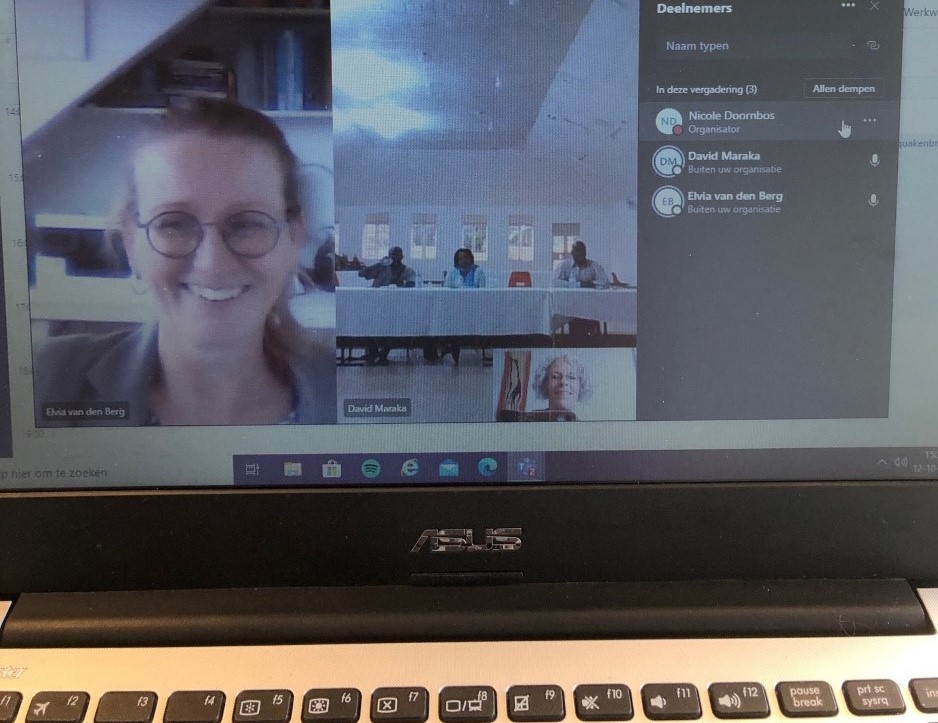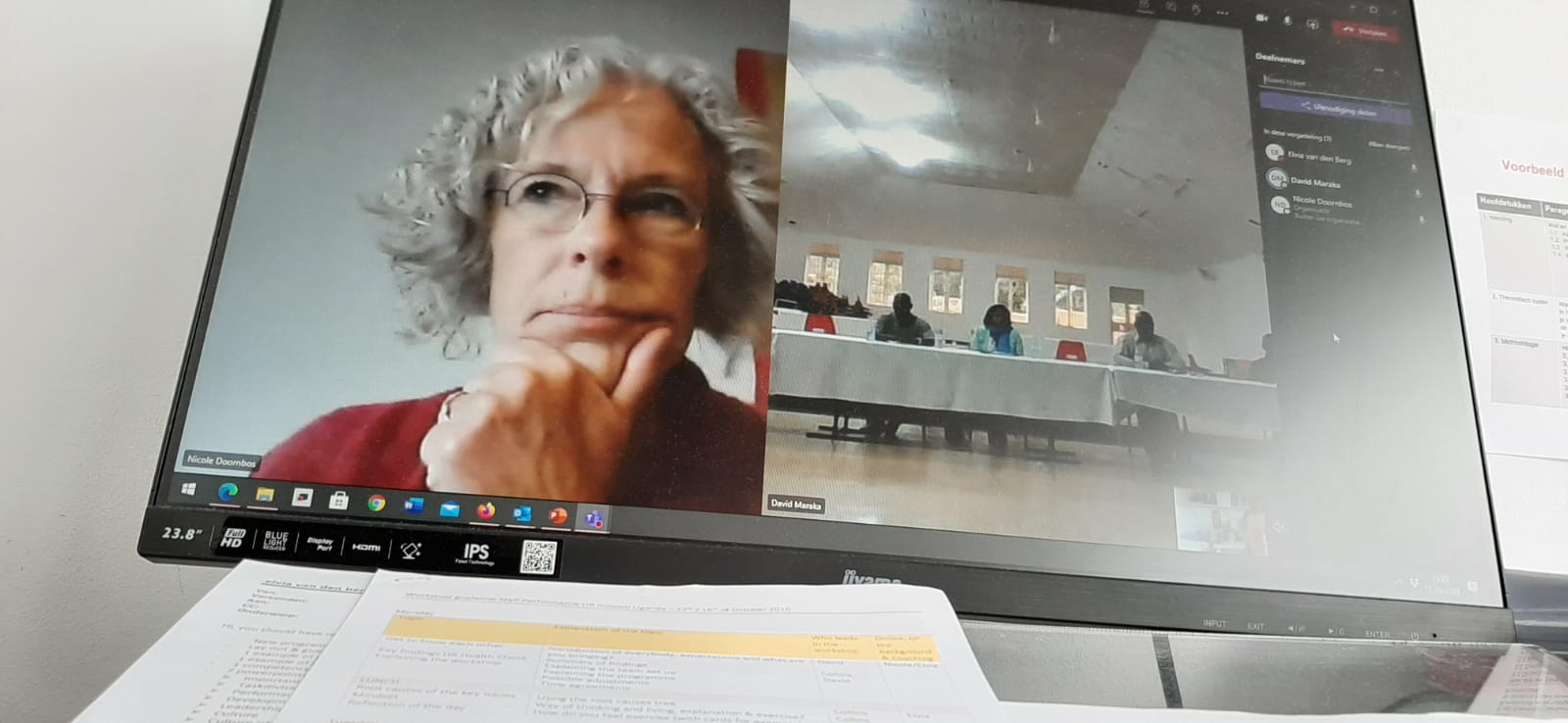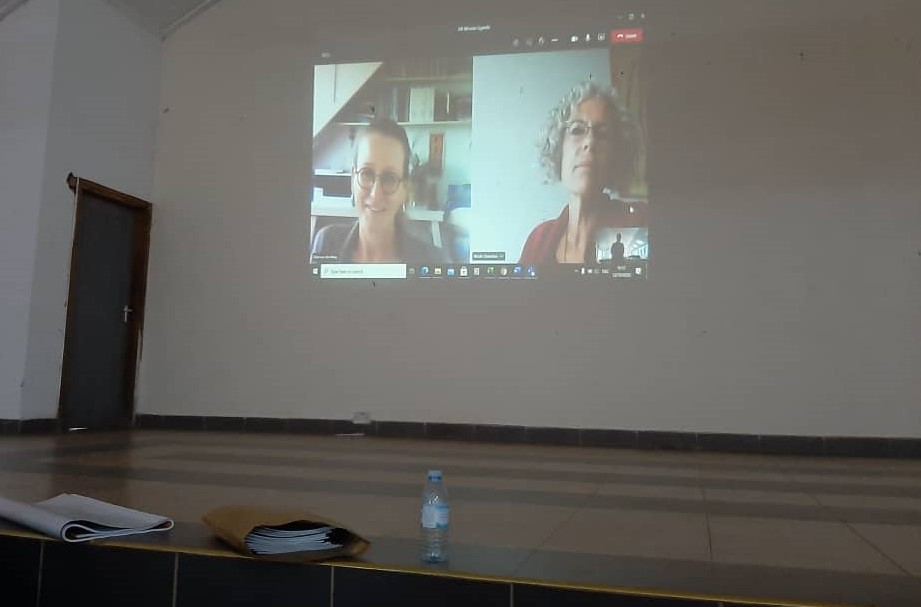Utilising local knowledge and experience
19-01-2021Nicole Doornbos and Elvia van den Berg, both members of Vrouwen van Nu, have carried out assignments for Agriterra in the field of Human Resource Management in the past. They did this together for the first time in November 2020, and what’s more, they did it online.
Nicole Doornbos has been working as a Human Resources (HR) Manager for a care home for the elderly for a year and a half. Before that, she worked in corporate services and was self-employed. Elvia van den Berg has worked in Botswana and Ethiopia, and in corporate services in the Netherlands. She currently works in organisational development on a self-employed basis.
Alignment
A 5-day ‘Staff performance and alignment to strategic goals’ workshop was part of the programme for Lyamujungu Cooperative Financial Services Limited (LCFSL) in Uganda. This is a financial cooperative with seven sites, 52 staff members and around 16,000 individual members. The cooperative had already captured a great deal on paper and the challenge was to help them align this with what they do in practice.
The assignment was a challenge for Nicole and Elvia. They wondered: what is the best way for us to approach this online? What methodology should we use and what is our role? Nicole: “We have delivered many online training courses, but this was different. Because it is interactive, the group decides what is necessary at that time.”


The Agripoolers commissioned a scoping study to look at what the issues were in the area of HR and then developed the programme using existing materials on one hand and developed new elements on the other. “You are normally onsite and you can adapt things if something doesn’t work or is unsuitable. In this case, you are not physically present, so we devoted a great deal of time to preparation and discussed it in detail with our colleagues who were actually there: Agriterra Business Advisor David Maraka and local HR Consultant Collins Aijuka.”
David and Collins delivered the workshop to approximately 20 participants from the cooperative in Uganda. David adds: “Good preparation is very important. We prepared the materials and the training together and we executed it exactly as we had planned. Each of us played a specific role. My role was to coordinate. The role of the Agripoolers was to provide the technical content and to share their experiences. And Collins was there to present the technical content as submitted by the Agripoolers. I think we made a good team, because our personalities, our backgrounds and our experiences complemented one another. This made the mission a success.”
Nicole and Elvia joined the online workshop for an hour and a half every day. According to David, the participants were very excited the first day, because it was the first time they had seen and talked to someone via a screen. That was a new experience for them and they were looking forward to it. The Agripoolers fulfilled the roles of information source, coach and expert. Nicole: “In retrospect, it was a good idea to do it that way, because you work in a demand-driven way. We were able to respond to needs effectively. When you deliver a presentation yourself, which was also an option, it is far more supply-driven.”

Connection
Every evening, the two Agripoolers sparred with David and Collins to review the day and prepare for the next day. They were concerned beforehand about whether they would feel a sufficient connection with the participants. But fortunately, that worked out well. Elvia says she was often able to offer a slightly different perspective. “Perhaps it is because of the fact the people come to you with their most sensitive issues. They explained what dilemmas they were struggling with and saw it as an opportunity to ask their questions.”
The advice provided by Nicole and Elvia often related to behaviour. They encouraged the participants to reflect on themselves: You might want all these things for your organisation, but what is your role and what is your influence? Questions included: how can we motivate our people, how do you deal with people who are not performing well, and how can you apply bonuses?
Elvia: “You sometimes see people getting stuck in certain habits and we were able to offer a slightly different perspective. Because there were two of us, it meant we could offer different experiences and approaches. By the way, it is just the same as in the Netherlands, we often have a slightly different perspective and look beyond existing systems. The combination with David and Collins worked really well because they understand the local setting very well.”
Two weeks later, there was a feedback and review session, which revealed that the participants had already started working on things that had inspired them in the workshop. This was often related to their own behaviour and execution of their tasks. For example, there was a situation with management and staff members regularly failing to understand one another. During the feedback session, a staff member said: “I now have the confidence to approach management and conceive solutions together.” Openness has been created. Some participants were so enthusiastic about the workshop they wanted to share it with their own teams to get to know one another better and agree how to work on objectives.
Collaboration
Nicole emphasises that there were four of them who hosted the workshop. “We were unable to spend the whole day online with them. That is unfeasible. That means you are dependent on the person running the workshop. You need to have confidence in them. That worked out really well for us. David and Collins were perfectly capable of doing everything themselves and also had their own experience to contribute.” That is what the Agripoolers think is positive about giving online advice. “You utilise local knowledge and experience too. That is very valuable and is in line with Agriterra’s mission. The fact we did this as a mixed team of four different people also provided added value. Naturally, there are also disadvantages. You normally spend a whole fantastic, intensive week there and have more of a connection with the people and are even more involved. But there was simply no other option. Because of COVID-19, we were more or less forced to let the people there come into their own. And it went well.”
David also sees advantages. “The costs are lower, because the Agripoolers did not need to travel to Uganda. So you immediately reduce risks. It takes far less time for Agripoolers to just log in online as opposed to being there physically. They can then focus on those two hours a day, so their time is used in a more results-oriented way. However, a disadvantage is that you are dependent on the internet connection and connectivity can fluctuate in a country like Uganda.”
